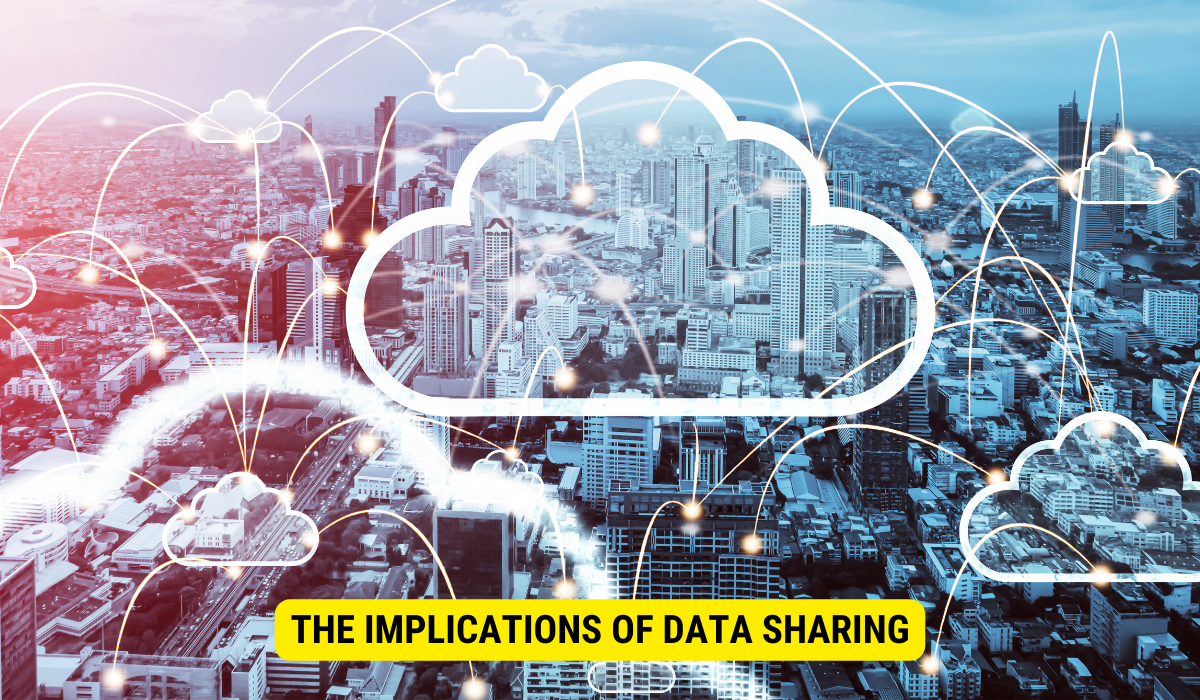Third parties on Facebook can access both personal details and non-personal user data. This sharing risks user privacy, security, and autonomy, including potential misuse and unauthorized access.
In recent years, concerns about data privacy have become more predominant than ever. With the growing inspiration of social media platforms like Facebook, the question of what privacy data is shared by third parties on these platforms has become a matter of great interest. To understand this issue better, it is essential to delve into the concept of data privacy itself.
Understanding the Concept of Data Privacy
Data privacy refers to the protection and control individuals have over their personal information, ensuring that unauthorized entities do not access or use it. It encompasses the right to determine when, how, and to what extent personal information is shared with others. Data privacy has become a paramount concern in an increasingly digital world, where everything from social interactions to financial transactions is conducted online.
Defining Data Privacy
At its core, data privacy is about safeguarding individuals’ personal information from being exploited or misused. This info may contain personally identifiable information (PII), such as names, addresses, phone numbers, or even more sensitive data like social security numbers or banking details. Protecting this sensitive information is vital as it can be used for various purposes, ranging from targeted advertising to identity theft.
When it comes to data privacy, it’s important to understand the different types of data that can be collected. There are two main categories: personally identifiable information (PII) and non-personally identifiable information (non-PII). PII refers to any data that can be used to identify an individual, such as their name, address, or social security number. Non-PII, however, includes data that cannot be used to identify a specific person, such as demographic information or browsing history.
Organizations that handle personal data are responsible for ensuring its privacy and security. This involves implementing robust security measures, such as encoding and access controls, to protect against unauthorized access or data breaches. Additionally, organizations must comply with relevant data protection rules, such as the General Data Protection Regulation (GDPR) in the European Union, which sets out strict guidelines for the processing and handling of personal data.
Importance of Data Privacy
Data privacy is crucial for several reasons. Firstly, it empowers individuals to retain control over their personal information, allowing them to make informed decisions about how and with whom they share their data. In an era of ubiquitous connectivity, this control ensures that individuals can maintain their privacy even in a digital landscape where data is constantly generated and collected.
Furthermore, data privacy is closely linked to the concept of autonomy. By safeguarding personal information, individuals can exercise autonomy and protect their lives from unwanted intrusion. This is particularly important in social media, where oversharing personal information can have long-lasting consequences.
Secondly, data privacy is vital for building trust. Individuals are more likely to engage with online services, such as social media platforms, if they have confidence in the robustness of privacy protections. Trust in data privacy is particularly essential for social media platforms like Facebook, which act as intermediaries between users and third-party entities.
Moreover, data privacy is not just an individual concern but also a societal one. Misusing or mishandling personal data can have far-reaching consequences, including discrimination, surveillance, and erosion of democratic principles. Therefore, protecting data privacy is about safeguarding individual rights and preserving the fabric of society as a whole.
In conclusion, data privacy is a fundamental right that individuals should be able to exercise in an increasingly digital world. It involves protecting personal information from unauthorized access or misuse, allowing individuals to retain control over their data, and building trust in online services. By understanding the concept of data privacy and its importance, individuals can confidently navigate the digital landscape and protect their personal information.
The Role of Facebook in Data Sharing
Regarding data sharing, Facebook plays a significant role due to its vast user base and extensive reach. Understanding Facebook’s data-sharing policies and how the platform handles user data is crucial in comprehending the privacy implications associated with third-party data sharing.
With billions of active operators, Facebook has become a treasure trove of data. This data, collected from users’ interactions, profiles, and devices, provides valuable insights into user behavior, preferences, and interests. With such a wealth of information at its disposal, Facebook has the power to shape the digital landscape and influence various industries.
Facebook’s Data Sharing Policies
Facebook maintains a complex ecosystem where user data is shared with various third-party entities. While Facebook has evolved its data-sharing policies over time, it has faced criticism and legal ramifications for controversial practices. The Cambridge Analytica scandal, for instance, revealed how user data was accessed without consent and used for targeted political advertising.
In response to such incidents, Facebook has been pressured to improve its data-sharing policies and protect user privacy. The company has tried to enhance transparency and user control over data sharing. Users now have more granular control over sharing their information with third parties and can manage their privacy settings accordingly.
However, concerns remain about how user data is shared and the potential for misuse by third-party entities. Striking the right balance between personalized experiences and protecting user privacy continues to challenge Facebook.
How Facebook Handles User Data?
As a social media platform, Facebook collects and examines vast user data to provide personalized experiences and target advertising. User data is amassed through various channels, including profile information, device information, and user interactions. The collected data can generate insights into user behavior, demographics, and interests, allowing Facebook to serve highly targeted advertisements.
Facebook’s algorithms are designed to analyze user data and create detailed user profiles. These profiles enable advertisers to precisely reach their target audience, ensuring that ads are relevant and engaging. By leveraging user data, Facebook has revolutionized the advertising industry, providing businesses with unprecedented opportunities to connect with potential customers.
However, it is important to note that Facebook has prioritized user privacy. In recent years, the platform has implemented stronger security measures, improved data handling practices, and revised its policies to enhance user control over their data. Despite these efforts, concerns about data privacy and the potential for data breaches persist.
Facebook’s role in data sharing is complex and multifaceted. While it offers users a platform to connect and share, it also collects and shares user data with third-party entities. The company’s data-sharing policies and practices continue to evolve as it navigates the delicate balance between personalized experiences and user privacy.
Third-Party Involvement in Data Sharing
While Facebook collects significant user data, it also shares it with third parties. Understanding who these third parties are and the processes involved in data sharing is critical to comprehending the scope and implications of sharing on Facebook.
Who are the Third Parties?
Third parties include various entities that partner with Facebook to receive or access user data. These entities can range from advertisers and marketers to application developers and researchers. By accessing user data, these third parties can increase insights into user behavior, preferences, and demographics, enabling them to tailor services, products, and advertisements to specific audiences.
The Process of Third-Party Data Sharing
The process of third-party data sharing can be complex. Typically, third parties collaborate with Facebook to access specific user data through APIs or other means. Facebook facilitates this data sharing in exchange for compliance with its policies and guidelines. However, ensuring that user data is not misused or mishandled by third parties remains an ongoing challenge.
Types of Privacy Data Shared by Third Parties
Regarding data sharing on Facebook, different types of privacy data are shared with third parties. These can include personally identifiable information (PII) and non-personally identifiable information, each carrying its privacy implications.
Personal Identifiable Information (PII)

PII includes any info that can be used to classify an individual, such as names, addresses, phone numbers, email addresses, or social security numbers. Sharing PII with third parties can lead to privacy breaches, identity theft, or unauthorized access to personal accounts.
Non-Personal Identifiable Information
Non-personal identifiable information refers to data that does not directly identify individuals. This can include demographic information, browsing behavior, location data, or device information. While non-PII does not reveal personal identity, it can still target individuals with tailored advertisements or influence user behavior.
The Implications of Data Sharing
Data sharing, especially involving third parties, raises many implications for user privacy, security, and control over personal information.
Risks Associated with Data Sharing
The primary risk associated with data sharing is the potential for unauthorized access and misapplication of personal information. Whether intentional or accidental, data breaches can result in identity theft, fraud, or other malicious activities. Additionally, targeted advertising, based on user data shared with third parties, can raise concerns about privacy intrusion and manipulation of user preferences.
The Impact on User Privacy
Data sharing on Facebook has a direct impact on user privacy. While users have control over their privacy settings and can customize the information shared with third parties, the volume and complexity of data sharing can make it tough for individuals to comprehend and manage their privacy preferences fully. The constant evolution of data-sharing practices, combined with limited oversight and user awareness, poses challenges to maintaining robust privacy protections.
Key Takeaways
- Types of Data: Two primary categories of data can be shared: personally identifiable information (PII) and non-personally identifiable information (non-PII).
- Facebook’s Role: Facebook has a vast user base, making it a significant data-sharing player. The platform collects user data, which can be shared with third parties under specific conditions.
- Third-Party Access: Third parties on Facebook can access PII and non-PII data, which they use for various purposes, including targeted advertising and research.
- User Control: Facebook has made efforts to increase transparency and provide users more control over their data, although concerns remain about potential misuse by third parties.
- Implications: Data sharing with third parties can lead to potential privacy breaches, identity theft, and unauthorized access, impacting user trust and autonomy.
FAQs
What is Data Privacy?
Data privacy refers to the protection and controls individuals possess over their personal information, ensuring it’s not accessed or used by unauthorized entities.
Why is Data Privacy important on platforms like Facebook?
Data privacy empowers individuals to control their personal information, builds trust in online services, and safeguards individual and societal rights against potential misuse.
How does Facebook handle user data?
Facebook collects data from users’ interactions, profiles, and devices to provide personalized experiences and targeted advertising. This data is processed and sometimes shared with third parties under specific guidelines.
Who are these “third parties” that access Facebook user data?
Third parties can range from advertisers and marketers to application developers and researchers who partner with Facebook to gain insights into user behavior and preferences.
What are the potential risks of third-party data sharing on Facebook?
Risks include unauthorized access, misuse of personal information, identity theft, privacy breaches, and manipulation of user preferences through targeted advertising.
Conclusion
In the digital age, understanding the intricacies of data sharing on platforms like Facebook is crucial. Third parties can access user information, affecting individual privacy and societal norms. As users, being aware of these practices and their potential consequences allows for more informed decisions in the digital world.
